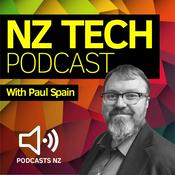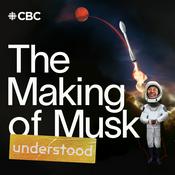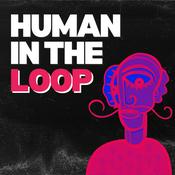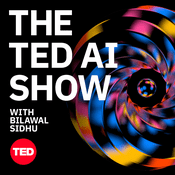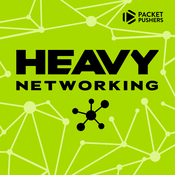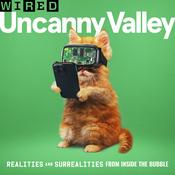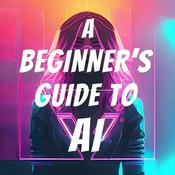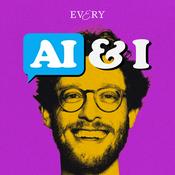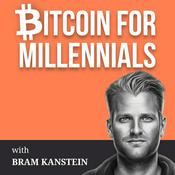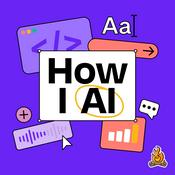490 episodes
- Ryan Kidd is a co-executive director at MATS. This episode is a cross-post from "The Cognitive Revolution", hosted by Nathan Labenz. In this conversation, they discuss AGI timelines, model deception risks, and whether safety work can avoid boosting capabilities. Ryan outlines MATS research tracks, key researcher archetypes, hiring needs, and advice for applicants considering a career in AI safety. Learn more about Ryan's work and MATS at: https://matsprogram.org
CHAPTERS:
(00:00) Episode Preview
(00:20) Introductions and AGI timelines
(10:13) Deception, values, and control
(23:20) Dual use and alignment
(32:22) Frontier labs and governance
(44:12) MATS tracks and mentors
(58:14) Talent archetypes and demand
(01:12:30) Applicant profiles and selection
(01:20:04) Applications, breadth, and growth
(01:29:44) Careers, resources, and ideas
(01:45:49) Final thanks and wrap
PRODUCED BY:
https://aipodcast.ing
SOCIAL LINKS:
Website: https://podcast.futureoflife.org
Twitter (FLI): https://x.com/FLI_org
Twitter (Gus): https://x.com/gusdocker
LinkedIn: https://www.linkedin.com/company/future-of-life-institute/
YouTube: https://www.youtube.com/channel/UC-rCCy3FQ-GItDimSR9lhzw/
Apple: https://geo.itunes.apple.com/us/podcast/id1170991978
Spotify: https://open.spotify.com/show/2Op1WO3gwVwCrYHg4eoGyP - Deric Cheng is Director of Research at the Windfall Trust. He joins the podcast to discuss how AI could reshape the social contract and global economy. The conversation examines labor displacement, superstar firms, and extreme wealth concentration, and asks how policy can keep workers empowered. We discuss resilient job types, new tax and welfare systems, global coordination, and a long-term vision where economic security is decoupled from work.
LINKS:
Deric Cheng personal website
AGI Social Contract project site
Guiding society through the AI economic transition
CHAPTERS:
(00:00) Episode Preview
(01:01) Introducing Derek and AGI
(04:09) Automation, power, and inequality
(08:55) Inequality, unrest, and time
(13:46) Bridging futurists and economists
(20:35) Future of work scenarios
(27:22) Jobs resisting AI automation
(36:57) Luxury, land, and inequality
(43:32) Designing and testing solutions
(51:23) Taxation in an AI economy
(59:10) Envisioning a post-AGI society
PRODUCED BY:
https://aipodcast.ing
SOCIAL LINKS:
Website: https://podcast.futureoflife.org
Twitter (FLI): https://x.com/FLI_org
Twitter (Gus): https://x.com/gusdocker
LinkedIn: https://www.linkedin.com/company/future-of-life-institute/
YouTube: https://www.youtube.com/channel/UC-rCCy3FQ-GItDimSR9lhzw/
Apple: https://geo.itunes.apple.com/us/podcast/id1170991978
Spotify: https://open.spotify.com/show/2Op1WO3gwVwCrYHg4eoGyP - Oly Sourbut is a researcher at the Future of Life Foundation. He joins the podcast to discuss AI for human reasoning. We examine tools that use AI to strengthen human judgment, from collective fact-checking and scenario planning to standards for honest AI reasoning and better coordination. We also discuss how we can keep humans central as AI scales, and what it would take to build trustworthy, society-wide sensemaking.
LINKS:
FLF organization site
Oly Sourbut personal site
CHAPTERS:
(00:00) Episode Preview
(01:03) FLF and human reasoning
(08:21) Agents and epistemic virtues
(22:16) Human use and atrophy
(35:41) Abstraction and legible AI
(47:03) Demand, trust and Wikipedia
(57:21) Map of human reasoning
(01:04:30) Negotiation, institutions and vision
(01:15:42) How to get involved
PRODUCED BY:
https://aipodcast.ing
SOCIAL LINKS:
Website: https://podcast.futureoflife.org
Twitter (FLI): https://x.com/FLI_org
Twitter (Gus): https://x.com/gusdocker
LinkedIn: https://www.linkedin.com/company/future-of-life-institute/
YouTube: https://www.youtube.com/channel/UC-rCCy3FQ-GItDimSR9lhzw/
Apple: https://geo.itunes.apple.com/us/podcast/id1170991978
Spotify: https://open.spotify.com/show/2Op1WO3gwVwCrYHg4eoGyP - Nora Ammann is a technical specialist at the Advanced Research and Invention Agency in the UK. She joins the podcast to discuss how to steer a slow AI takeoff toward resilient and cooperative futures. We examine risks of rogue AI and runaway competition, and how scalable oversight, formal guarantees and secure code could support AI-enabled R&D and critical infrastructure. Nora also explains AI-supported bargaining and public goods for stability.
LINKS:
Nora Ammann site
ARIA safeguarded AI program page
AI Resilience official site
Gradual Disempowerment website
CHAPTERS:
(00:00) Episode Preview
(01:00) Slow takeoff expectations
(08:13) Domination versus chaos
(17:18) Human-AI coalitions vision
(28:14) Scaling oversight and agents
(38:45) Formal specs and guarantees
(51:10) Resilience in AI era
(01:02:21) Defense-favored cyber systems
(01:10:37) AI-enabled bargaining and trade
PRODUCED BY:
https://aipodcast.ing
SOCIAL LINKS:
Website: https://podcast.futureoflife.org
Twitter (FLI): https://x.com/FLI_org
Twitter (Gus): https://x.com/gusdocker
LinkedIn: https://www.linkedin.com/company/future-of-life-institute/
YouTube: https://www.youtube.com/channel/UC-rCCy3FQ-GItDimSR9lhzw/
Apple: https://geo.itunes.apple.com/us/podcast/id1170991978
Spotify: https://open.spotify.com/show/2Op1WO3gwVwCrYHg4eoGyP - David Duvenaud is an associate professor of computer science and statistics at the University of Toronto. He joins the podcast to discuss gradual disempowerment in a post-AGI world. We ask how humans could lose economic and political leverage without a sudden takeover, including how property rights could erode. Duvenaud describes how growth incentives shape culture, why aligning AI to humanity may become unpopular, and what better forecasting and governance might require.
LINKS:
David Duvenaud academic homepage
Gradual Disempowerment
The Post-AGI Workshop
Post-AGI Studies Discord
CHAPTERS:
(00:00) Episode Preview
(01:05) Introducing gradual disempowerment
(06:06) Obsolete labor and UBI
(14:29) Property, power, and control
(23:38) Culture shifts toward AIs
(34:34) States misalign without people
(44:15) Competition and preservation tradeoffs
(53:03) Building post-AGI studies
(01:02:29) Forecasting and coordination tools
(01:10:26) Human values and futures
PRODUCED BY:
https://aipodcast.ing
SOCIAL LINKS:
Website: https://podcast.futureoflife.org
Twitter (FLI): https://x.com/FLI_org
Twitter (Gus): https://x.com/gusdocker
LinkedIn: https://www.linkedin.com/company/future-of-life-institute/
YouTube: https://www.youtube.com/channel/UC-rCCy3FQ-GItDimSR9lhzw/
Apple: https://geo.itunes.apple.com/us/podcast/id1170991978
Spotify: https://open.spotify.com/show/2Op1WO3gwVwCrYHg4eoGyP
More Technology podcasts
Trending Technology podcasts
About Future of Life Institute Podcast
The Future of Life Institute (FLI) is a nonprofit working to reduce global catastrophic and existential risk from powerful technologies. In particular, FLI focuses on risks from artificial intelligence (AI), biotechnology, nuclear weapons and climate change. The Institute's work is made up of three main strands: grantmaking for risk reduction, educational outreach, and advocacy within the United Nations, US government and European Union institutions. FLI has become one of the world's leading voices on the governance of AI having created one of the earliest and most influential sets of governance principles: the Asilomar AI Principles.
Podcast websiteListen to Future of Life Institute Podcast, Lex Fridman Podcast and many other podcasts from around the world with the radio.net app
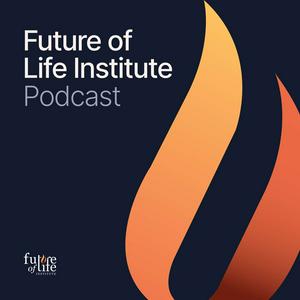
Get the free radio.net app
- Stations and podcasts to bookmark
- Stream via Wi-Fi or Bluetooth
- Supports Carplay & Android Auto
- Many other app features
Get the free radio.net app
- Stations and podcasts to bookmark
- Stream via Wi-Fi or Bluetooth
- Supports Carplay & Android Auto
- Many other app features


Future of Life Institute Podcast
Scan code,
download the app,
start listening.
download the app,
start listening.







